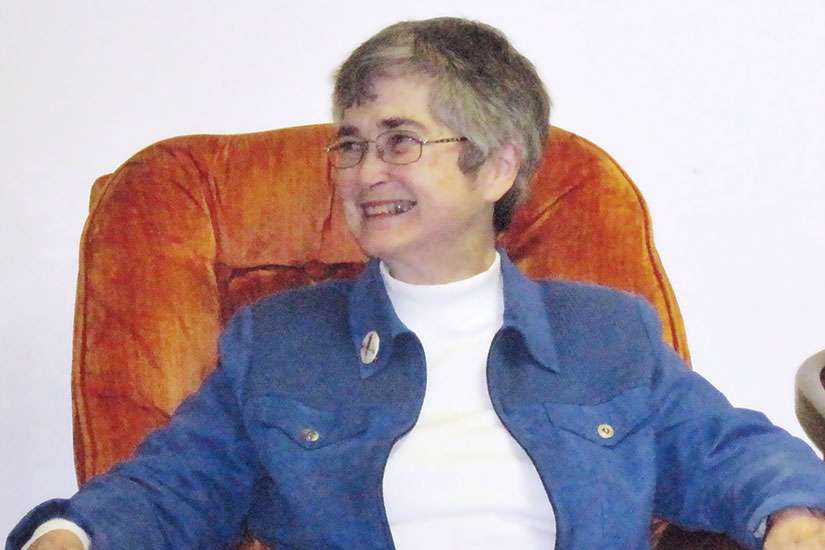“When I first started, I thought I was nuts,” she says.
But for Douillard, service to others is a way of life.
The young-at-heart senior, who jokes that she has been a nun “for ages,” has been helping prisoners and their families as a volunteer for about 10 years since the end of her teaching career.
She sees her role as helping to bring about “transformation through grace.” Her work is more often referred to as restorative justice, a spiritual and social exercise designed to help prisoners integrate into society after they have served their time.
The process involves visiting and praying with prisoners, while also helping them to make restitution to their victims wherever possible.
Believing in a person, no matter what they’ve done, is very helpful spiritually, she says.
“When you’ve heard their own stories, when you know their suffering, it helps you to empathize. If I believe in this person, what does God see in us?”
Douillard is a past recipient of an award from Correctional Service Canada in recognition of her “outstanding involvement” in working with prisoners, their families and victims, and for recruiting volunteers. However, the modest nun, a member of the Sisters of the Holy Names of Jesus and Mary, calls it “no big deal.”
When she began working in restorative justice, the activist nun was coming out of a very different place. For years she had been on the front lines of an interfaith coalition trying to stop human trafficking, especially the sex trafficking of prostituted women and underage girls. The men she befriended in prison were often the very perpetrators who molested children and sexually exploited vulnerable women.
Listening to them tell their stories was tough.
“It’s hard to listen to, knowing what victims go through,” she says. “With time I learned you don’t want details. You just need to know in general about the crime.”
She began to discern that by accompanying these men on their spiritual journeys she was opening her own heart more fully to the love of God. She knew that she wasn’t alone, any more than the men she was helping, because of God’s healing presence.
“Every person starts out good, but sometimes people make choices that aren’t good,” she says.
Her approach is based on the principles outlined in the book Houses of Healing, which helps offenders get in touch with their inner child. This involves praying, talking and active listening, as well as “quiet time, stillness,” she says.
Prisoners are encouraged to talk about their victims and to write a letter to them. It helps if they have some religious foundation.
“I don’t think they can do this if they don’t have a spiritual component,” Douillard said.
Helping prisoners also involves supporting and counselling their families and helping offenders reintegrate into society after there release. Groups like Alcoholics Anonymous and Narcotics Anonymous are beneficial for prisoners and ex-convicts, she says.
“They help them to talk about their feelings,” she said.
Douillard has glowing praise for the chaplains from different denominations she has worked with over the years at different prisons.
“They are all terrific people,” she says. “They have to fight with prison authorities to prove that they aren’t psychotherapists,” she says, because someone is always looking to get rid of them for budgetary reasons.
“Yet, they are so effective. I have grown to admire them.”
She is hoping that the federal Liberal government will restore funding to the program known as Circle of Support and Accountability (COSA) which was cancelled by the former Conservative government. The program allows sex offenders, after going through a rehabilitation program, day passes to visit their families while accompanied by a volunteer. Critics of restorative justice decry this kind of initiative because they say it releases offenders back into the community.
Douillard keeps her sense of humour intact, despite obstacles. Noting that many of the volunteers who visit men in prison are young women, she says, laughing, “I would be considered an old lady.”
Mostly, she is grateful for the privilege of getting to know these individuals over the course of an eight-to-10-week program.
“It’s wonderful,” she says, “because you meet with the same man over and over.”
(Rankin is a writer in Montreal.)


